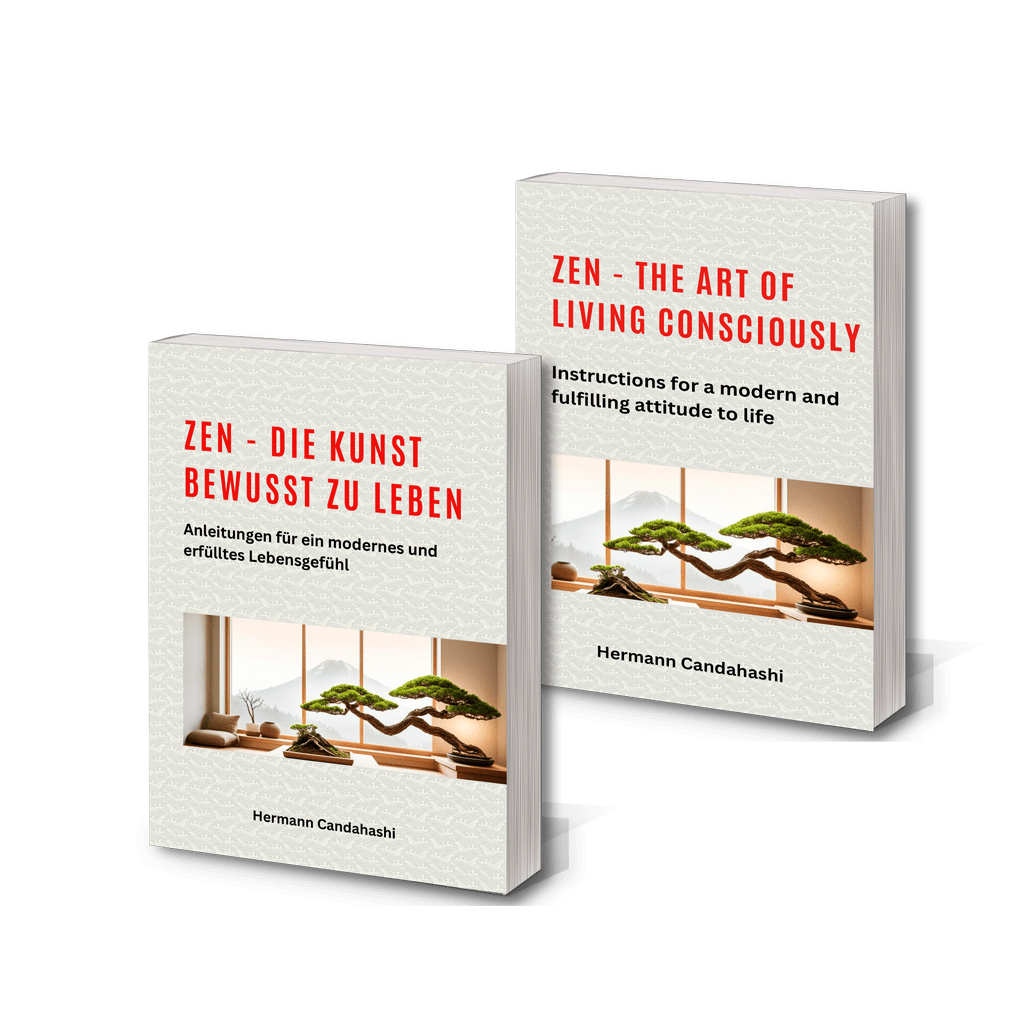
“Zen – the art of living consciously – instructions for a modern and fulfilled attitude to life”
Welcome to a world of mindfulness and inner harmony. Our lives are often hectic and overwhelming. My book “Zen – the art of living consciously – instructions for a modern and fulfilled attitude to life” can also help you to experience a calm and clear perspective and fill your life with peace and relaxation.
This book is a comprehensive guide on how you can integrate Zen practices into your everyday life in order to lead a more conscious, fulfilled and balanced life. It is aimed at everyone who longs for inner peace and has the desire to bring more mindfulness into their daily life.
Zen is a millennia-old practice that has its origins in the Buddhist tradition. It is about calming the mind, living in the present moment and looking at the world with clear and open eyes. Zen teaches us to appreciate life in its simplicity and beauty and to find inner peace, regardless of external circumstances.
Learn the basic principles of Zen. You will learn how important it is to calm the mind and live in the here and now. Through simple but effective exercises, you will be shown how to integrate mindfulness into your everyday life. Breathing exercises, meditation techniques and the art of conscious walking are just some of the methods that will help you clear your mind and find inner peace.
Nature plays a central role in Zen. Learn how connecting with nature can give you deeper insights and a sense of connection with the world around you. Walking in the forest, observing plants and animals and consciously experiencing the seasons are powerful methods of practicing mindfulness and finding inner peace.
Zen can also have a profound effect on our interpersonal relationships. My book offers instructions on how to create more harmonious and fulfilling relationships through mindfulness and compassion. You will learn how to build a deeper connection with those around you through conscious listening, patience and empathy.
Zen can have a positive impact on our physical and mental health. Learn how mindfulness and meditation can reduce stress, strengthen the immune system and contribute to an overall feeling of well-being. Practical tips and exercises show you how to integrate Zen practices into your health routine.
This book encourages you to follow the path of Zen. It reminds you that Zen is a lifelong journey – a journey to greater awareness, peace and fulfillment.
Ultimately, this book is more than just an introduction to Zen practice. It is a companion on your path to a more conscious, fulfilled and harmonious life. Immerse yourself in the art of Zen and discover the infinite possibilities that are hidden in every moment.
Yours, Hermann Candahashi
read An excerpt
Zen in Everyday Life
In a world characterized by rush, stress, and constant distraction, Zen can be a valuable practice for finding calm and clarity in everyday life. Zen is a Buddhist tradition that aims to recognize truth through direct experience and appreciate the present moment. Below, we explore various aspects of Zen in everyday life to understand its application and importance for modern people.
Zen in everyday life begins with mindfulness. Mindfulness means being consciously in the present moment, without judgment and without being distracted by thoughts about the past or future. This can be cultivated through various practices such as meditation, conscious breathing, and consciously performing everyday tasks.
A simple yet powerful practice to develop mindfulness is breath meditation. Sit in a comfortable position, close your eyes, and focus your attention on your breath. Watch the breath flow in and out of your body without trying to control or change it. When thoughts arise, simply let them pass by and gently return to the awareness of your breath.
Another way to practice Zen in everyday life is through mindful eating. Instead of mindlessly eating or working while you work, take time to enjoy your food and fully taste each bite. Notice the flavors, textures, and sensations that arise as you eat, and be grateful for the food that provides you with energy and nutrients.
Zen can also help deepen interpersonal relationships and cultivate empathy. By being present in the present moment and fully listening to what others have to say, you can create a deeper connection with them. In addition, compassion and understanding of others’ feelings and needs can help resolve conflict and promote harmony in relationships.
A central tenet of Zen is simplicity. By detaching yourself from material possessions and the pursuit of more and more, you can find inner peace. This does not mean that you have to give up all the comforts of modern life, but rather that you consciously choose which things are really important and which are just unnecessary ballast.
In the hectic workday, Zen can help reduce stress and increase productivity. By focusing on a task and performing it with full attention, you can improve efficiency and quality. Furthermore, short breaks for breathing exercises or short meditations can help calm the mind and recharge.
The beauty and harmony of nature can be a source of inspiration and comfort. By spending time outdoors and observing nature, you can feel connected to the world around you and develop a deep sense of gratitude and awe. This can help reduce stress and overcome feelings of loneliness or isolation.
Finally, Zen is a practice of self-reflection and self-discovery. By regularly pausing and observing your own mind, you can become aware of your inner processes and recognize negative thought patterns or behaviors. This allows one to live more consciously and make more conscious decisions that are in line with one’s values and goals.
